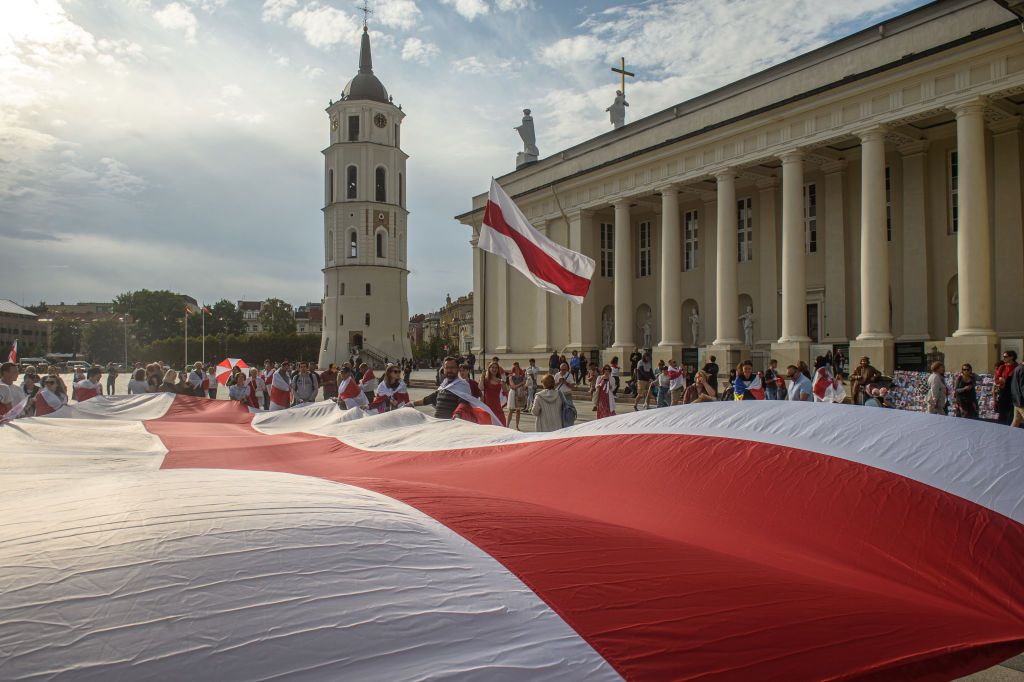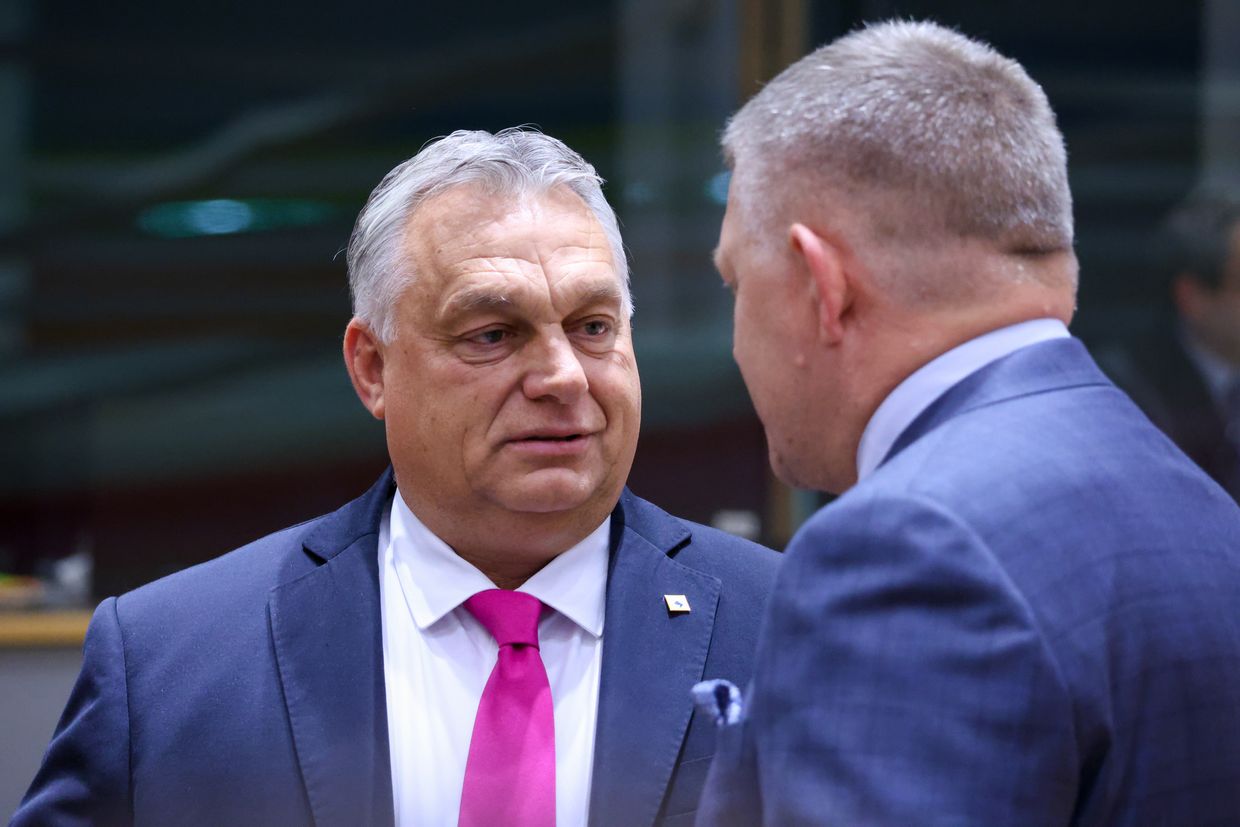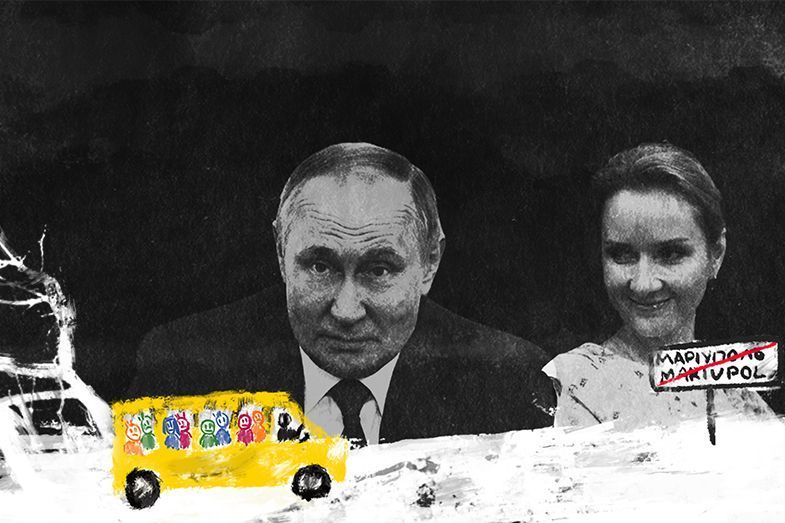Belarus Weekly: Putin attends CSTO summit in Minsk

Belarus gears up for its first elections since the fraudulent presidential election that triggered mass protests and a brutal regime crackdown three years ago. Experts are under no illusions that the upcoming elections will be free or fair.
Russia and Belarus veto Estonia’s OSCE chairmanship – a move that Estonia’s foreign minister says is because it’s a NATO member.
A report by Yale University finds that over 2,400 children have been deported from occupied Ukraine to facilities across Belarus since the start of Russia’s full-scale war.
Ukraine imposes sanctions against Alexei Talai, the face of Belarus’ deportations of Ukrainian children, and his charitable organization.
Belarus hosts the CSTO summit in Minsk. Putin attended.
Belarus gears up for next year’s elections
Belarusian authorities are gearing up for the first elections since the fraudulent presidential election that triggered mass protests and a brutal regime crackdown three years ago.
The upcoming elections will be held on Feb. 25, 2024, for the House of Representatives, or lower house of parliament, and the country’s local councils of deputies.
The elections will usher in major structural changes within the Belarusian government, namely by making the All-Belarusian People’s Assembly an official organ with immense powers.
The All-Belarusian People’s Assembly is comprised mainly of officials who have been selected through obscure means by Lukashenko’s regime to fabricate legitimacy surrounding the regime’s decisions.
Immediately after the elections, Belarus will activate a draft bill that grants the assembly greater powers, including over the executive. This includes the authority to introduce martial law, impeach the president, cancel presidential election results, nullify government decisions, and sign off on major political appointments.
Experts are under no illusions that the elections will be free and fair. In addition to cracking down on dissent, Belarusian authorities have dissolved all independent opposition parties.
Belarus also ranked among the worst performers in the 2022 Democracy Index, scoring 153rd out of 195 countries.
The Belarusian human rights groups Viasna and Belarus Helsinki Committee, under their joint initiative Human Rights Defenders for Free Elections, announced the launch of a “monitoring mission” to observe the elections.
Russia, Belarus veto Estonia’s OSCE chairmanship
Russia and Belarus vetoed Estonia’s candidacy for the 2024 Organization for Security and Co-operation in Europe (OSCE) chairmanship, Estonian Foreign Minister Margus Tsahkna said on Nov. 21.
Tsahkna claimed Russia and Belarus did so because they did not want a NATO member to hold the OSCE’s next chairmanship, calling the move “blackmail.”
With 57 states from across Europe, Central Asia, and North America, the OSCE is the world’s largest regional security organization. Estonia has been the European Union’s joint chairmanship candidate since 2020.
The OSCE’s chairmanship rotates each year, with the chosen state’s foreign minister acting as the organization’s chairperson.
“It is regrettable that due to the veto imposed by Russia and, at their instigation, Belarus today (at the OSCE Permanent Council’s meeting) in Vienna, Estonia’s candidacy for the chairmanship of the OSCE in 2022 was not confirmed,” Tsahkna said.
The move has prevented the OSCE from adopting its budget, holding events, and extending foreign missions, including in Ukraine.
“As Russia is violating all fundamental principles of the OSCE with its bloody war of aggression, it is unacceptable to subject to Moscow’s demands and blackmail, including its wish that the next country to hold the OSCE Chairmanship is not a NATO member,” Tsahkna continued.
“Although the activities of the OSCE have been beset by confrontations from the start, the organization has never faced a graver crisis than now.”
Meanwhile, Canada, Iceland, Liechtenstein, Norway, Switzerland, and the U.K. issued a joint statement calling for free and fair elections in Belarus ahead of the announcement.
Yale research: Over 2,400 children forcibly taken from Ukraine to Belarus
At least 2,442 children between the ages of six and 17 have been forcibly taken from Russian-occupied parts of Ukraine to facilities across Belarus since the start of Russia’s full-scale invasion, according to a Yale University report published on Nov. 16.
The children were reportedly taken from at least 17 Ukrainian cities to Belarus, where they were subjected to military training and pro-regime education.
Over 2,050 of them were placed in Belarus’ Dubrava children’s center between September 2022 and May 2023, and the remainder in 12 other facilities across the country.
According to official estimates, Russia has abducted over 20,000 children from Russian-occupied parts of Ukraine. Belarusian government authorities and the Red Cross’ Belarusian branch have both admitted involvement, having even invited foreign representatives to visit the facilities where the children are kept in Belarus.
Taking children under the age of 18 across a border without the consent of a parent or guardian is prohibited under international humanitarian law.
The International Criminal Court (ICC) issued arrest warrants for Russian President Vladimir Putin and Russian Children’s Rights Commissioner Maria Lvova-Belova for organizing the transfers back in March, and the European Parliament has since called on the ICC to issue a similar warrant against Belarusian dictator Alexander Lukashenko for his complicity in the crime.
The Yale report states that Lukashenko approved, oversaw, and financed the displacements in direct cooperation with Putin under the auspices of their Union State.
Also allegedly complicit in the transfers is the Belarusian state-owned potash producer OJSC Belaruskali, the Belarusian charity director Alexei Talai, and Olga Volkovna, the director of a so-called “non-governmental organization” under the Russian proxy administration in occupied Donetsk.
“These revelations of Belarusian involvement are part of a broader campaign directed by Russia,” the U.S. State Department said in a statement, adding that the operations have “disproportionately targeted vulnerable children, including purported orphans, children with disabilities, children from low-income families, and children of members of Ukraine’s military.”
While key figures involved in the transfers from Ukraine to Belarus say without evidence that all of the children taken from Ukraine have returned, the Yale report said it could not confirm the claim.
Ukraine sanctions Belarusian, his charity for deporting Ukrainian children
President Volodymyr Zelensky included Belarusian Paralympic athlete Alexei Talai and his eponymous charitable organization on a sanctions list targeting those allegedly involved in the deportation of children from occupied parts of Ukraine to Russia and Belarus.
Zelensky issued two decrees on Nov. 18 sanctioning 100 individuals and 37 entities, including the general secretary of the Union State of Russia and Belarus, Dmitry Mezentsev.
Russia’s Commissioner for Children’s Rights, Maria Lvova-Belova, was also on the list.
Talai, an ardent Lukashenko supporter, and his charitable organization are the public face of the deportations in Belarus, even going so far as to admit to having facilitated the transfers as early as August 2021 before the full-scale invasion started.
Back in September, Talai announced that his charity helped to transfer children from “dilapidated cities and towns in the new territories of Russia,” referring to Ukraine’s occupied territories. In comments to Belarusian state-run media, he said Lukashenko personally approved the project.
Canada and Poland have also imposed sanctions against Talai and his organization.
Belarus hosts CSTO summit
The CSTO is an international military alliance consisting of Belarus, Russia, Kazakhstan, Tajikistan, Kyrgyzstan, and Armenia. The upcoming summit, which Belarusian dictator Alexander Lukashenko will chair, will reportedly focus on “issues of international and regional security” and Kazakhstan’s upcoming presidency.
Russian President Vladimir Putin has attended the summit in person.
“This year has turned out to be extremely complicated and tense both for the Collective Security Treaty Organization and its member states and for Belarus’ presidency over the organization,” Belarusian Foreign Minister Sergei Aleink said.
“We took over the presidency in a period of systemic crisis in international relations and unprecedented deterioration of the military and political situation on the Eurasian continent.”
Belarusians at EuroMaidan Revolution
The Spotlight segment provides readers with the historical context of contemporary events in Belarus.
Ukraine celebrated the Day of Dignity and Freedom on Nov. 21, which marks the beginning of two of the country’s revolutions: the 2004 Orange Revolution and the 2013 EuroMaidan Revolution.
The EuroMaidan Revolution witnessed Ukrainians flocking to Kyiv’s main square to protest then-President Viktor Yanukovych’s refusal to sign an association agreement with the European Union in favor of strengthening ties with Russia.
Over 100 people were killed 10 years ago during the revolution.
One of the first victims of the police was 25-year-old Belarusian Mikhail Zhyzneuski. A native of Belarus’ southern Homiel region, Zhyzneuski moved to Ukraine when he was just 17.
Zhyzneuski joined the protests at their very onset, helping to guard its core against the onslaught of attacks by Ukrainian law enforcement, who sought to disperse the crowds. He was killed by a shot to the chest during a confrontation between law enforcement and protestors on Kyiv’s Hrushevskoho Street on Jan. 22, 2014.
Ukraine gave Zhyzneuski the “Hero of Ukraine” award and the “Order of the Heavenly Hundred Heroes.”
The success of Ukraine’s EuroMaidan Revolution has haunted Belarusian dictator Alexander Lukashenko, whose illegitimate grip on Belarus is weakening.
In the lead-up to the Belarusian presidential election in 2020, which was deemed fraudulent, Lukashenko likened growing unrest in Belarus to what happened in Ukraine, vowing to use force against those who dissented.
During a meeting with a Russian governor in March 2022, Lukashenko proudly proclaimed: “The Maidan they had in Ukraine didn’t work out!”















